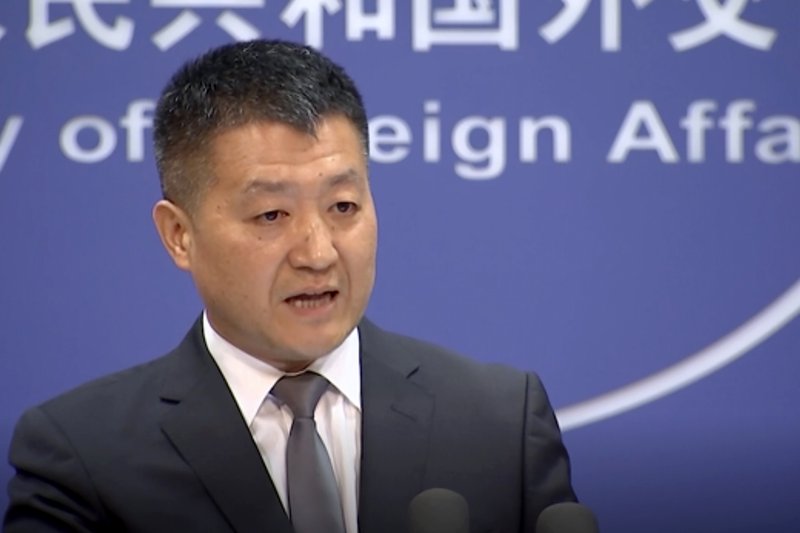CANBERRA, Australia -- Australia's foreign minister said Friday that her government was "deeply disappointed" that a Chinese Australian writer was placed in criminal detention in Beijing, prompting China to urge against "irresponsible" interference.
Foreign Minister Marise Payne said China notified Australia that spy novelist and former Chinese diplomat Yang Hengjun was taken into criminal detention, six months after he was taken into custody at a Chinese airport.
"The Australian government is deeply disappointed that Australian citizen and academic Dr. Yang Hengjun ... has been transferred to criminal detention in China," Payne said in a statement.
"The Australian government is concerned by this development in relation to an Australian citizen. We will continue to press Chinese authorities for fair and humane treatment, in accordance with international norms," she said.
The 53-year-old visiting scholar at Columbia University in New York was detained Jan. 19 when he arrived in southern China's Guangzhou from New York with his wife, Yuan Xiaoliang, and his 14-year-old stepdaughter.
China's Foreign Ministry said Yang was suspected of engaging in criminal activities that endanger China's security and the investigation was ongoing.
"We express strong dissatisfaction with the statement made by the Australian foreign minister and urge the Australian side not to interfere in China's handling of the case in any way and to stop making irresponsible remarks," ministry spokesman Geng Shuang said.
Yang's Beijing-based lawyer Mo Shaoping said Yang's wife was notified Wednesday that the Ministry of State Security had transferred him to criminal detention in Beijing.
Earlier, he was held under so-called residential surveillance. That can involve being guarded 24 hours a day with lights on continuously and tortures such as sleep deprivation, being tied to a chair or forced to stand for hours.
Yang has not been formally charged.
The investigative agency must decide within 37 days whether to approve his formal arrest or request more time for investigation, Mo said.
Payne said Australia has raised concerns over Yang's case with Chinese senior officials. Australian Embassy officials have visited Yang six times, most recently on June 27.
She had written twice to the Chinese foreign minister but had been denied requests for "a fair and transparent resolution to this matter" and that Yang have access to his lawyers.
"The government has expressed concern about Dr. Yang's welfare and the conditions under which he is held. And we have asked for clarification regarding the reasons for Dr. Yang's detention. If he is being detained for his political views, then he should be released," she said.
Yang's Sydney-based friend, Feng Chongyi -- who was detained in China for two weeks in 2017 while researching human rights lawyers -- thanked Payne for what he described as "the strong statement I have been asking for."
Foreign-policy experts and human-rights advocates have urged the government to do more to secure Yang's freedom, with critics arguing Australia's response has not been strong enough.
Some pointed to Australia's success this month in persuading North Korea to release Australian student Alek Sigley a week after he was detained on accusations of spying.
John Garnaut, a former government security adviser, said in April that he had warned his friend Yang not to visit China. He said Yang told him he had been questioned by a Chinese government official in Sydney in 2018 about a classified report Garnaut wrote for the government on Chinese influence in Australian politics.
The report led to sweeping laws banning covert foreign political interference and contributed to a diplomatic rift between Australia and China.
Information for this article was contributed by Yanan Wang and Liu Zheng of The Associated Press.
A Section on 07/20/2019
